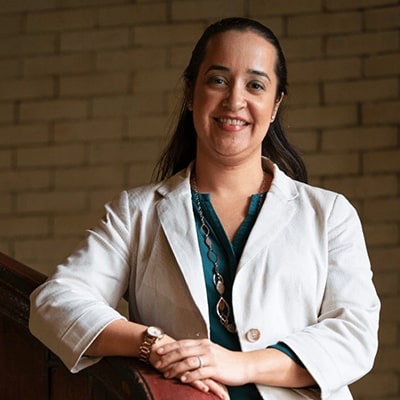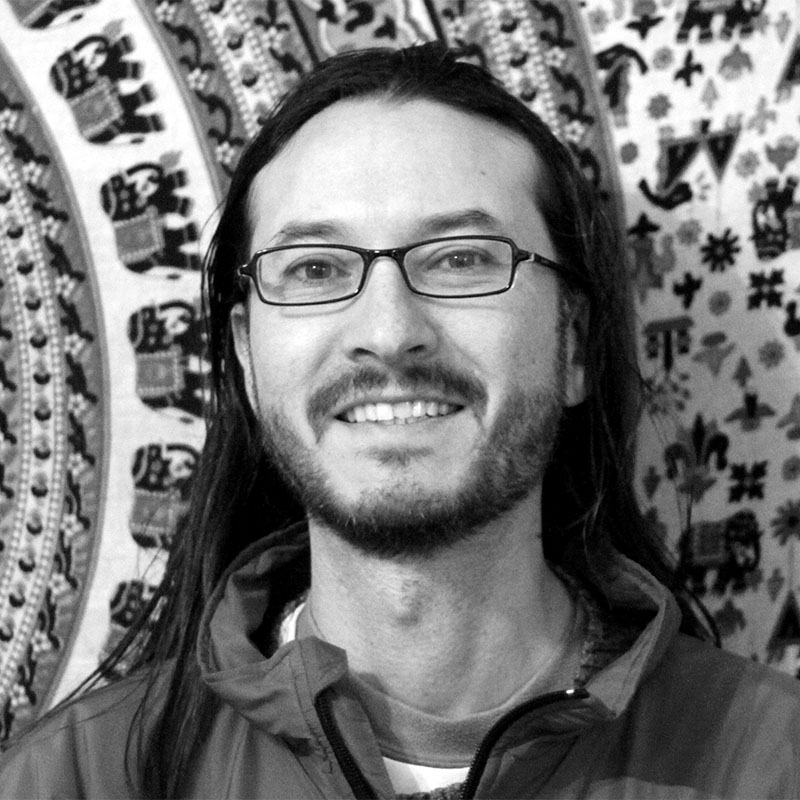Ulloa-Shields & Gómez Honored with Advising, Teaching Awards
Carnegie Mellon University honors faculty and staff for their exceptional contributions in teaching, advising and mentoring with its annual Celebration of Education Awards. The awards recognize the accomplishments of those who exemplify the university's standards of excellence in education, and celebrates CMU’s distinguished faculty members and educators for their outstanding contributions and devotion to the university.
Dietrich College’s Ana Maria Ulloa-Shields was honored with the Award for Outstanding Contributions to Academic Advising and Mentoring and Felipe Gómez with the Teaching Innovation Award. A full list of recipients are detailed here.
Award for Outstanding Contributions to Academic Advising and Mentoring
Ana Maria Ulloa-Shields, Associate Dean for Student Success, Academic Advisory Center, Dietrich College
 Ana Maria Ulloa-Shields has had a transformative impact on Dietrich College of Humanities and Social Sciences’ advising model. This approach supports students throughout their undergraduate experience, covering academics, experiential learning, and personal and professional development.
Ana Maria Ulloa-Shields has had a transformative impact on Dietrich College of Humanities and Social Sciences’ advising model. This approach supports students throughout their undergraduate experience, covering academics, experiential learning, and personal and professional development.
“Advisors are now expected to help students holistically across all four years. This has worked, and it has moved the needle with the students as well,” said Richard Scheines, Bess Family Dean of the Dietrich College. “When Ana Maria took over in 2015, Dietrich was in the middle of the pack on student satisfaction with advising. Now we are at the top.”
As associate dean for student success, Ulloa-Shields serves as the primary academic advisor for a cohort of students, and she collaborates with advisors across the college to ensure that all Dietrich students receive the help and guidance they need.
“Ana Maria offers models for inclusive practices that lift students' spirits as valued members of the Dietrich community,” said Jennifer Keating, Dietrich College’s assistant dean for educational initiatives. “She remembers students' names, reminding each student with whom she engages, whether in her office or at college-level events, that they are visible and valued.”
When needed, Ulloa-Shields partners with families and/or guardians to ensure a student's academic and personal health. Her efforts extend to building relationships and communicating effectively faculty, ranging from one-on-one interactions to organizing workshops on teaching first-year students.
Ulloa-Shields facilitates students' exploration of academic offerings in the college and throughout CMU, and she has played a critical role in developing new experiential learning opportunities like Dietrich College’s Pittsburgh Summer Internship Program. In its first year, the program placed 24 students at 12 organizations throughout Pittsburgh. Now in its third year, the program has matched 60 Dietrich College students with Pittsburgh-based nonprofit, government and startup organizations.
Ulloa-Shields also is recognized for elevating the role of advising within the college and building a community of practice among colleagues.
“Ana Maria supports Dietrich’s advising by providing effective mentoring and professional development for our whole set of advisors,” said Sharon Carver, Dietrich College’s associate dean for educational affairs. “She keeps them up to date on university-level policies and current training opportunities, advocates for them at the college and university level, and seeks ways to recognize their accomplishments and provide advancement opportunities.”
by Abby Simmons
Teaching Innovation Award
Felipe Gómez, Teaching Professor of Hispanic Studies, Department of Modern Languages
 Comics, coding and Hispanic culture: all of these attributes can be found in the innovative courses led by Felipe Gómez. Gómez’s courses, such as “Superheroes and Beyond: Spanish Language Comics in Digital Humanities” and “Comics, Community, and Coding: Electronic Textuality and Culture in Latin America,” help students learn a new language of code while developing their skills in Spanish language acquisition.
Comics, coding and Hispanic culture: all of these attributes can be found in the innovative courses led by Felipe Gómez. Gómez’s courses, such as “Superheroes and Beyond: Spanish Language Comics in Digital Humanities” and “Comics, Community, and Coding: Electronic Textuality and Culture in Latin America,” help students learn a new language of code while developing their skills in Spanish language acquisition.
Gómez’s classes integrate digital humanities and Hispanic studies through an online platform he created called the Latin American Comics Archive. Students are taught the basics of Comic Book Markup Language (CBML) to code and analyze the literal and symbolic language of comics.
For his work on the Latin American Comics Archive, Gómez was awarded “Best Formative Initiative Developed in 2018” by the Hispanic Digital Humanities, an international professional organization that fosters digital humanities projects in the area of Hispanic Studies globally.
Susan Polansky, head of the Department of Modern Languages, emphasized the varied interdisciplinary aspects present in Gómez’s courses.
“In addition to engaging students with cultural content that explores popular culture, politics, social, historical, and economic circumstances,” Polansky said, “Felipe has guided students to develop their proficiency in Spanish and build their experience in the digital humanities.”
Gabriele Maier, an associate teaching professor of German, believes Gómez is bringing a greater appreciation of comics and graphic novels as a valuable literary genre.
“Felipe cleverly draws interest in and experience of comics many students might have and encourages them to view their youthful passion in a different light,” Maier said.
Innovation is not without compassion. Alumna Haili Adams describes a unique situation where the class schedule of her major conflicted with the required 400-level courses needed for her minor in Hispanic studies
“To solve this issue, Professor Gómez offered to enroll me in his 300-level course, while changing certain course aspects to satisfy the necessary workload and rigor of a 400-level course,” Adams said. “For this reason, I was already impressed with his dedication to teaching before even stepping foot into the classroom.”
Adams continued, “Professor Gómez continually demonstrated a passion for teaching the entire time I was in his class. He worked tirelessly to design course material that integrated history, society, computer science, and comics.”
by Cameron Monteith